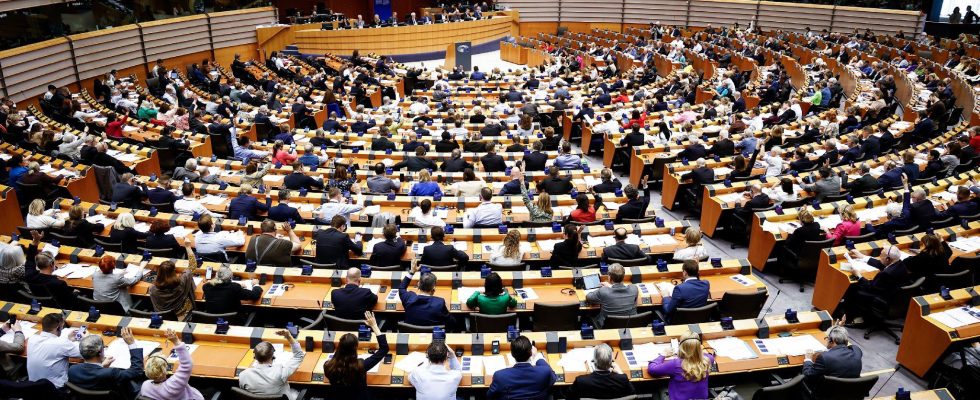MEPs, meeting in plenary session in Strasbourg, voted this Tuesday April 23 for the reform of EU budgetary rules intended to guarantee the recovery of public finances of Member States while preserving investments.
The text, fiercely negotiated for more than two years, is considered by left-wing elected officials as a tool establishing austerity in Europe. But he won broad support from the three main political groups: conservative EPP, social democrats (S&D) and liberals (Renew).
The new rules are “more flexible, more credible in their implementation”, they “will allow a gradual reduction of public debts without compromising growth”, affirmed the European Commissioner for the Economy, Paolo Gentiloni, during a debate just before the vote. An agreement on this reform was reached on February 10 between negotiators from MEPs and those from member states. The text will be applied this year by the Finance Ministers of the Twenty-Seven to prepare their 2025 budgets.
A complex text
The reform aims to modernize the Stability Pact, created at the end of the 1990s and which limits the public administration deficit to 3% of GDP and the debt to 60% for each country. Considered too strict, this framework was never really respected and was considered obsolete.
While confirming these emblematic ratios, the new text makes a little more flexible the adjustment requested from EU countries in the event of excessive deficits, if they agree to investments and structural reforms. Above all, the effort will be adapted to their individual situation. Concretely, it provides that States present trajectories over four or seven years in order to ensure the sustainability of their debt. The management will focus on the evolution of expenditure, an indicator considered more relevant than deficits which can fluctuate depending on the level of economic growth.
“Straitjacket”
But Germany and its “frugal” allies have obtained a minimum quantified effort to reduce debt and deficits for all countries with excessive deficits, despite the reluctance of France and Italy. These modifications with a view to toughening have partly distorted and greatly complicated the text.
EU Finance Ministers painfully reached a common position, just before Christmas, on this reform which intends to combine budgetary seriousness and safeguarding the investments necessary for the green transition or defense. It is the result of a balance between the position of the indebted countries of southern Europe, like France, which insisted on additional flexibilities, and the so-called “frugal” countries of northern Europe, behind Germany, who demanded more rigor.
“This reform constitutes both a new start and a return to budgetary responsibility. The old rules presented numerous weaknesses and shortcomings, they suffered from almost non-existent implementation,” welcomed the German conservative MEP Markus Ferber. “We have secured a strong social footprint in the new rules,” said Portuguese socialist MEP Margarida Marques, co-rapporteur of the text.
The Greens and certain S&D elected officials, however, reject it en bloc, as do the radical left. They denounce a return to austerity which will slow down investment and benefit populists, after three years of suspension of European budgetary rules in the face of the double shock of the pandemic and the war in Ukraine. The new “unfair and deadly” rules will “impose a straitjacket on all European states” and “create the conditions for political impotence”, warned Belgian environmentalist MEP Philippe Lamberts. This agreement “will require member states to reduce their debt quickly and in a way that is not economically and socially sustainable: this will mark a return to austerity”, Belgian, French, Italian and Italian unions ruled on Monday. Spaniards, in an open letter.
